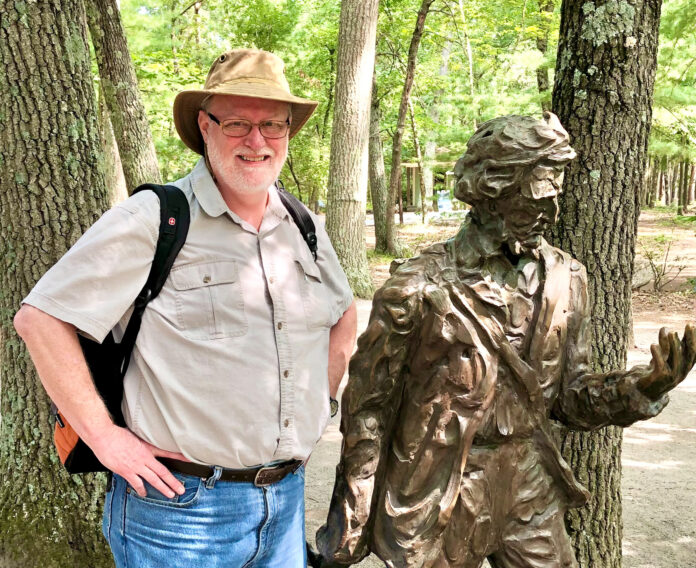A Mercer University faculty member has been appointed to the board of The Thoreau Society, the largest and oldest organization devoted to an American author.
Dr. Marc Jolley, senior lecturer of philosophy and director of Mercer University Press, has been a member of the society since 2006 and a student of Henry David Thoreau for even longer.
He was first introduced to the writer’s work when he was in seminary. In 1993, Dr. Jolley turned to Thoreau when he was asked to teach a six-week course on the environment at a church.
Thoreau, who lived from 1817-1862, was a naturalist, transcendentalist and philosopher who believed the path to a greater understanding of life was through nature.
“Thoreau was a deep spiritual thinker, but he was not a church person,” Dr. Jolley said. “He had a real sense of the divine, and it was found in nature. It was found in each of us.”
Dr. Jolley, who has been at Mercer since 1995, teaches Thoreau’s works in his ethics and philosophy of religion courses. In the classes, he uses Walden to examine topics such as cultivation of the soul and the concept that God is present in each person.
The Thoreau Society aims to stimulate interest and foster education about Thoreau’s life, works and philosophy. The board of directors is responsible for the general management and control of the property, affairs and funds of The Thoreau Society. Dr. Jolley sits on the board’s publications and finance committees.
“It’s a humbling experience, and there’s a sense of real responsibility for making sure that this continues going as well as it has been going,” he said.
He was elected to serve the three-year term at the society’s annual gathering in July in Concord, Massachusetts, where Thoreau was born and lived most of his life. Also at the annual gathering, which was themed around the 250th anniversary of the Revolutionary War, Dr. Jolley presented his paper, “Walden as a Declaration of Independence.”
Walden, published in 1854, describes Thoreau’s experiences in a cabin he built near Walden Pond. Dr. Jolley’s paper looked at how Thoreau’s move to Walden Pond was a way of breaking free from all of society’s demands and expectations.
“This was a real act of independence from society to live a better life rather than one that’s just a pure conformist,” he said.
Dr. Jolley said he’s gained a wealth of knowledge from being a part of The Thoreau Society. Though Thoreau died of tuberculosis just before turning 45, his writings document a robust life.
“The things he wrote, the places he went and the time he spent in nature were an extraordinary amount for someone who lived that briefly,” he said.










